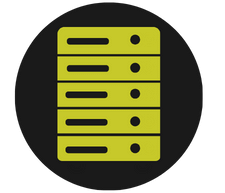In the realm of cloud computing, understanding the nuances between different services is paramount as a client looking for a service. Today, we'll delve into the realms of VPS (Virtual Private Server) and RDP (Remote Desktop Protocol), exploring their functionalities, benefits, and key differences. Whether you're a seasoned cloud computing professional or just starting your web hosting journey, this guide aims to explain the answer to the VPS vs RDP question.
What is a VPS?
A Virtual Private Server (VPS) is a virtual machine sold as a service by an Internet hosting service. Virtual private servers run on technology that virtualizes one computer into multiple different "Virtual" servers that each individual customer can use. A VPS runs its own copy (usually referred to as an image) of an operating system (OS), where customers have root-level access to that operating system instance, allowing them to install almost any software that runs on that OS. Think of owning a VPS as if you are owning a portion (slice) of a physical server that operates independently from other virtual machines on the same hardware.
Benefits of Using a VPS
- Scalability: A VPS offers scalability, allowing users to easily upgrade or downgrade their resources based on their requirements.
- Cost-Effectiveness: Compared to dedicated servers, VPS solutions are often more affordable while still providing a significant level of control and customization.
- Isolation: Each VPS operates independently of others on the same physical server, ensuring that activities on one VPS do not affect others, thus enhancing security and performance.
- Flexibility: Users have full root access to their VPS, giving them the freedom to configure and customize the server environment to meet their specific needs.
Challenges with Using a VPS
- Technical Expertise: Setting up and managing a VPS requires a certain level of technical expertise, including knowledge of server administration and networking. Fortunately, you can use our VPS guides if you need help getting started.
- Resource Management: Optimizing resource allocation and managing server resources efficiently can be challenging, especially during periods of high traffic or resource demand. If you don't know the amount of server resources you'll need for your use case, it can be hard to pick a good plan without doing proper research.
What is RDP?
Remote Desktop Protocol (RDP) is a proprietary protocol developed by Microsoft that enables users to connect to another computer over a network connection. With RDP, users can access and control a remote desktop or application as if they were physically present at the remote location. It facilitates remote administration, application hosting, and virtual desktop infrastructure (VDI) solutions for Virtual Private Servers and computers on Windows operating systems.
Benefits of RDP:
- Remote Accessibility: RDP allows users to access their desktops or applications from anywhere with an internet connection, promoting flexibility and productivity.
- Centralized Management: IT administrators can efficiently manage and troubleshoot remote systems without the need for physical access.
- Resource Sharing: RDP enables multiple users to access the same remote desktop simultaneously, fostering collaboration and teamwork.
- Enhanced Security: RDP sessions are encrypted, ensuring that data transmitted between the local and remote machines remains secure.
Challenges of RDP
- Network Dependency: RDP performance heavily relies on network stability and bandwidth. Poor network conditions can lead to laggy or disconnected sessions.
- Limited Functionality: While RDP is excellent for remote desktop access, it may lack certain features required for complex tasks such as multimedia rendering or high-performance computing.
- Security Risks: If not properly configured, RDP can be vulnerable to security threats such as brute-force attacks or malware exploitation, potentially compromising sensitive data.
- Requires a Window License: A remote desktop server needs to be running a Pro edition of Windows. This makes the cost of running an RDP server exponentially higher than a VPS with normal SSH access.
VPS vs RDP: What's the Difference?
While both VPS and RDP offer remote access and control capabilities, they serve different purposes and operate at different levels of abstraction.
- Infrastructure: VPS provides a virtualized environment with dedicated resources, including CPU, RAM, and storage, whereas RDP allows users to remotely access an existing desktop or server environment.
- Functionality: VPS allows users to deploy and manage their own virtual servers, offering a high level of customization and control, while RDP primarily focuses on remote desktop access and administration.
- Use Cases: VPS is ideal for hosting websites, applications, and databases, whereas RDP is commonly used for remote administration, software development, and virtual desktop infrastructure.
In conclusion, while a virtual private server and the remote desktop protocol share similarities in facilitating remote access and control, they cater to different use cases and are distinctly different terms used to describe virtual access to physical hardware. RDP is the technical method used to access the virtual server, while a VPS is the actual virtualized server.


